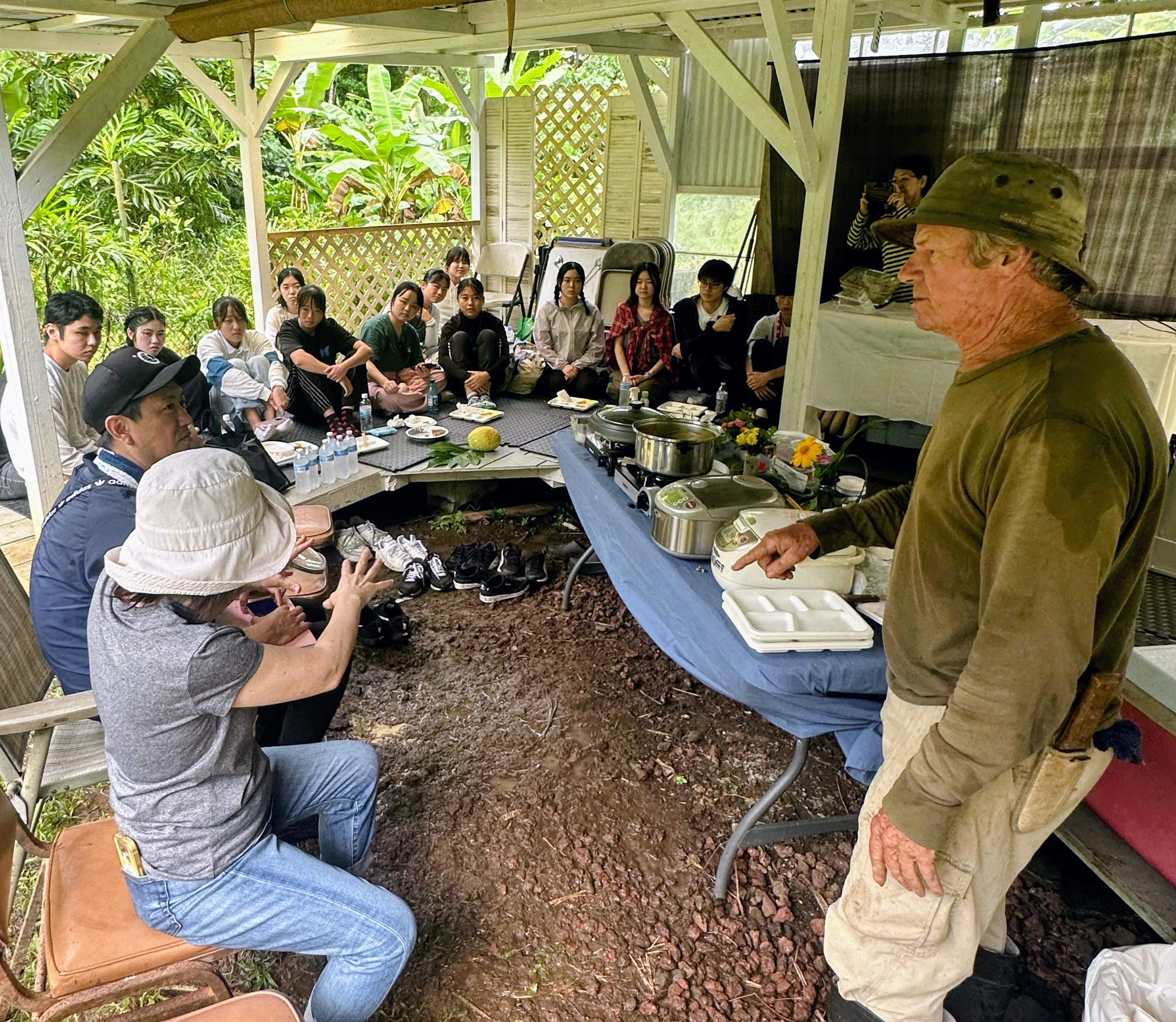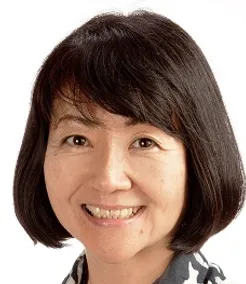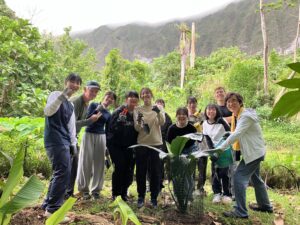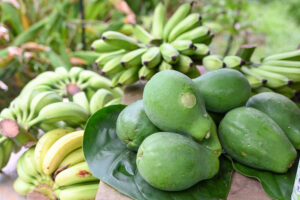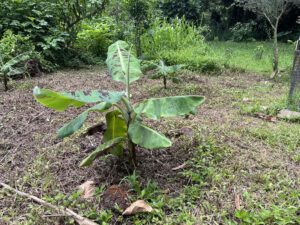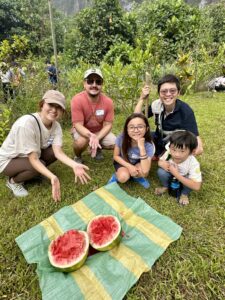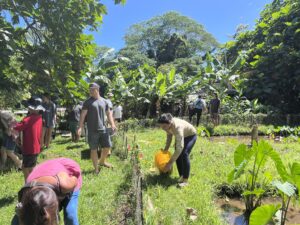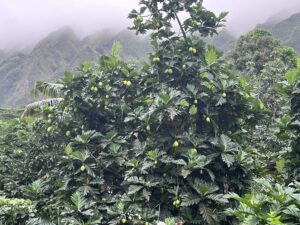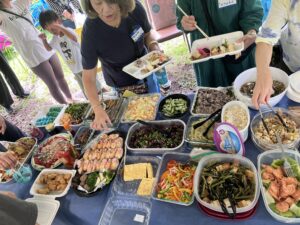Following the last year, Japanese high school students selected for the Fukuoka Prefecture education program “From Fukuoka to the World” visited our farm again.
Before leaving Japan, they had learned about the current state of the industry in Hawaii and the challenges it faces and had narrowed down each one’s theme to explore. When Gary and Takae read the research sheets they sent us beforehand, we were impressed by their sharp awareness of the social issues in the world. We were looking forward to meeting with them on our farm[BB1] .
[BB1]Please insert the PDF (Research sheet by a student from Fukuoka)
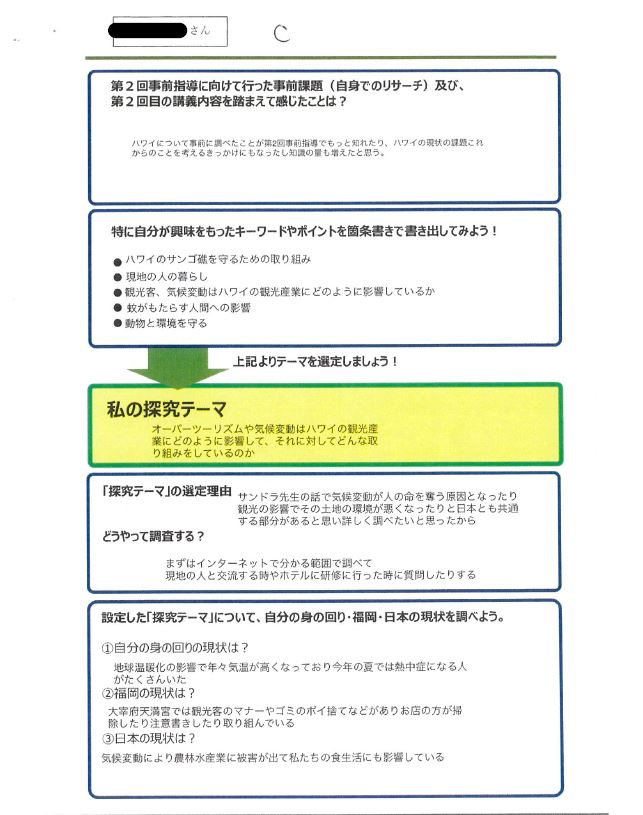
For the first time in the group education program, we went on a walk and forest bathing (shinrin yoku) around a small path along the river in the forest surrounding our farm. While enjoying nature with all five senses: the scentful grass, birds chirping, colorful flowers, and the fresh ozone of the forest; participants were given an overview of this farm project.
After Gary’s lecture on organic soil preparation using natural farming methods, the scheduled time flew by as they were divided into groups for basic tasks such as feeding the clipped weeds to the chickens, harvesting avocados, and planting Peace Lily seedlings as praying for world peace.
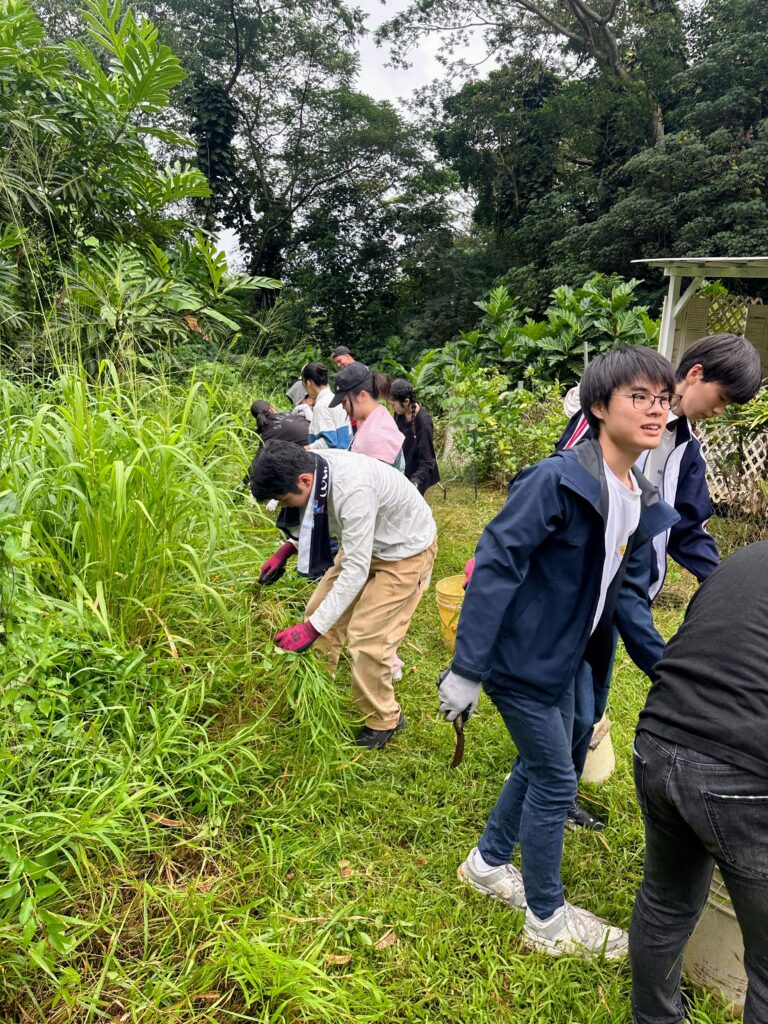
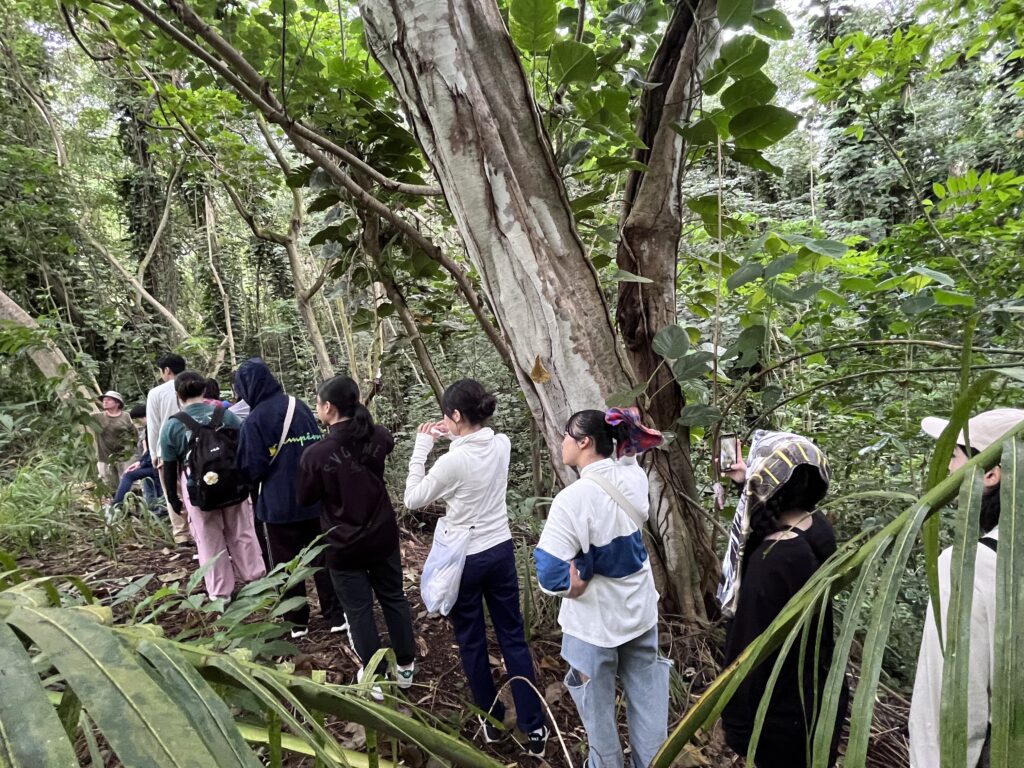
During lunch of ulu (breadfruit) curry and ulu-pumpkin pie, Gary and Takae explained the purpose, philosophy, and history of the farm. When it came to the QA session, a student who was interested in “balancing tourism and nature conservation” asked a question about the plastic bag problem and solution in Hawaii, which led to a heated discussion about individual and corporate responsibility.
Discussing plastic trash problems within a building in a large city tends to focus on technical solutions, but under Mother Nature, people can honestly talk about what the right thing is to do for human beings who are allowed to live as part of it.
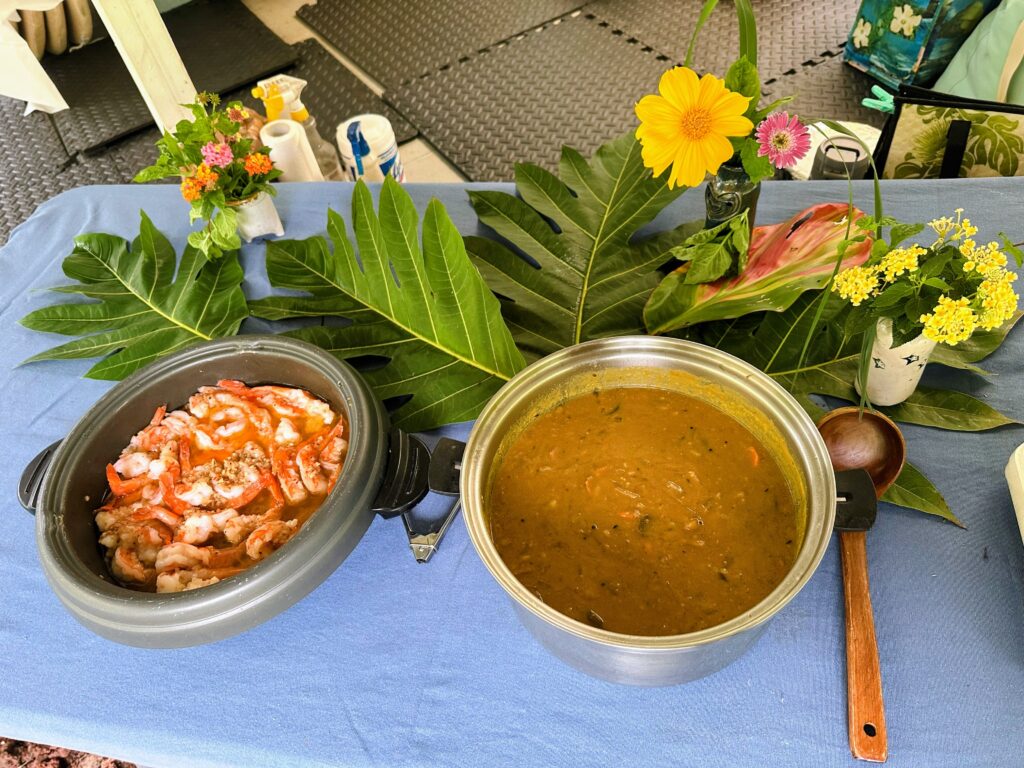
It was an inspiring day that made us realize such things and appreciate candid questions from the young visitors who were seriously thinking about the future of humans.

